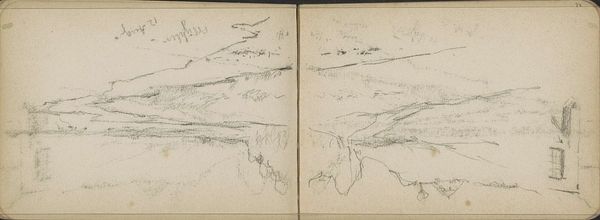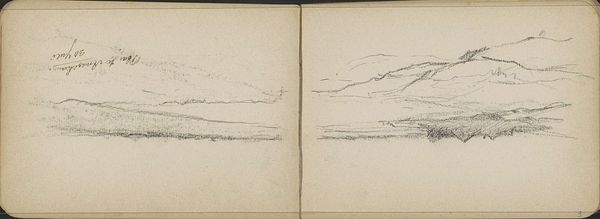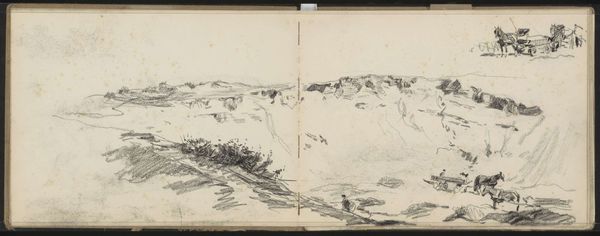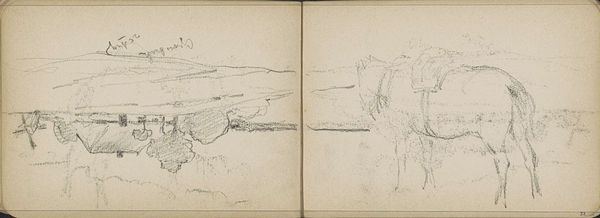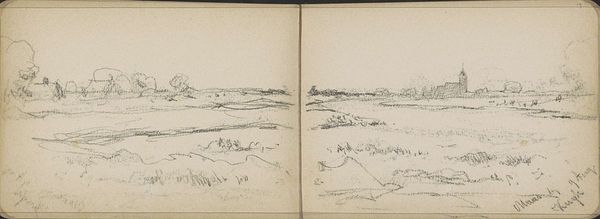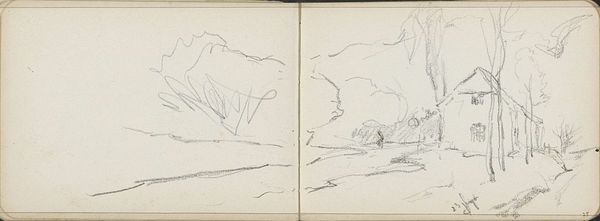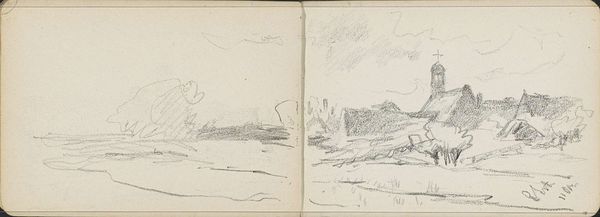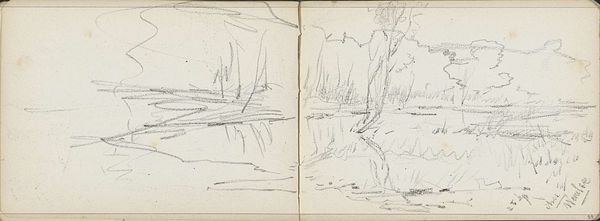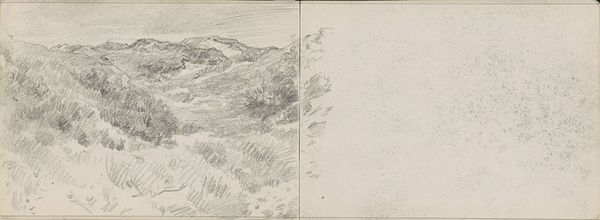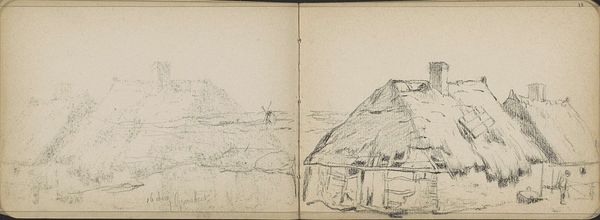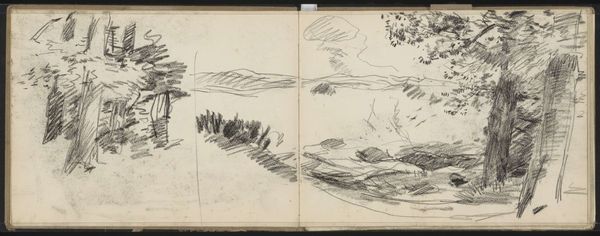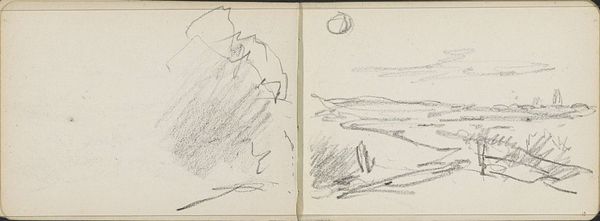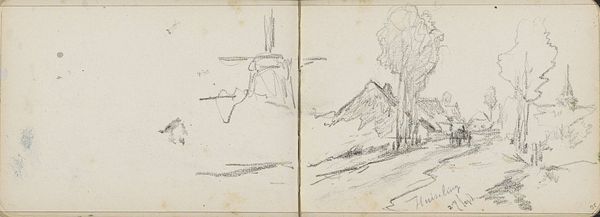
drawing, pencil, graphite
#
drawing
#
light pencil work
#
pen sketch
#
sketch book
#
landscape
#
personal sketchbook
#
sketchwork
#
ink drawing experimentation
#
pen-ink sketch
#
pencil
#
pen work
#
graphite
#
sketchbook drawing
#
sketchbook art
Dimensions: height 113 mm, width 159 mm
Copyright: Rijks Museum: Open Domain
Willem Cornelis Rip made this landscape sketch of Groesbeek with pencil on paper, though we don't know exactly when. Rip was active at a time when Dutch artists were turning away from grand, historical subjects and focusing on everyday scenes and landscapes. The Hague School, with its emphasis on realism and the Dutch countryside, was a dominant force. Here we can see the artist's interest in capturing the unique qualities of the Dutch landscape through the marks of this rough sketch. But landscapes are never just neutral depictions. They can reflect ideas about national identity and the relationship between people and the land. During Rip’s lifetime, there was growing interest in the conservation of nature. Artists' depictions of the landscape played a role in shaping public perceptions and promoting environmental awareness. To fully understand the meaning of this sketch, we might turn to sources like exhibition catalogs, period writings about Dutch art, and the archives of art institutions. Considering the social and cultural context helps us to understand the values and beliefs that shaped its creation.
Comments
No comments
Be the first to comment and join the conversation on the ultimate creative platform.
